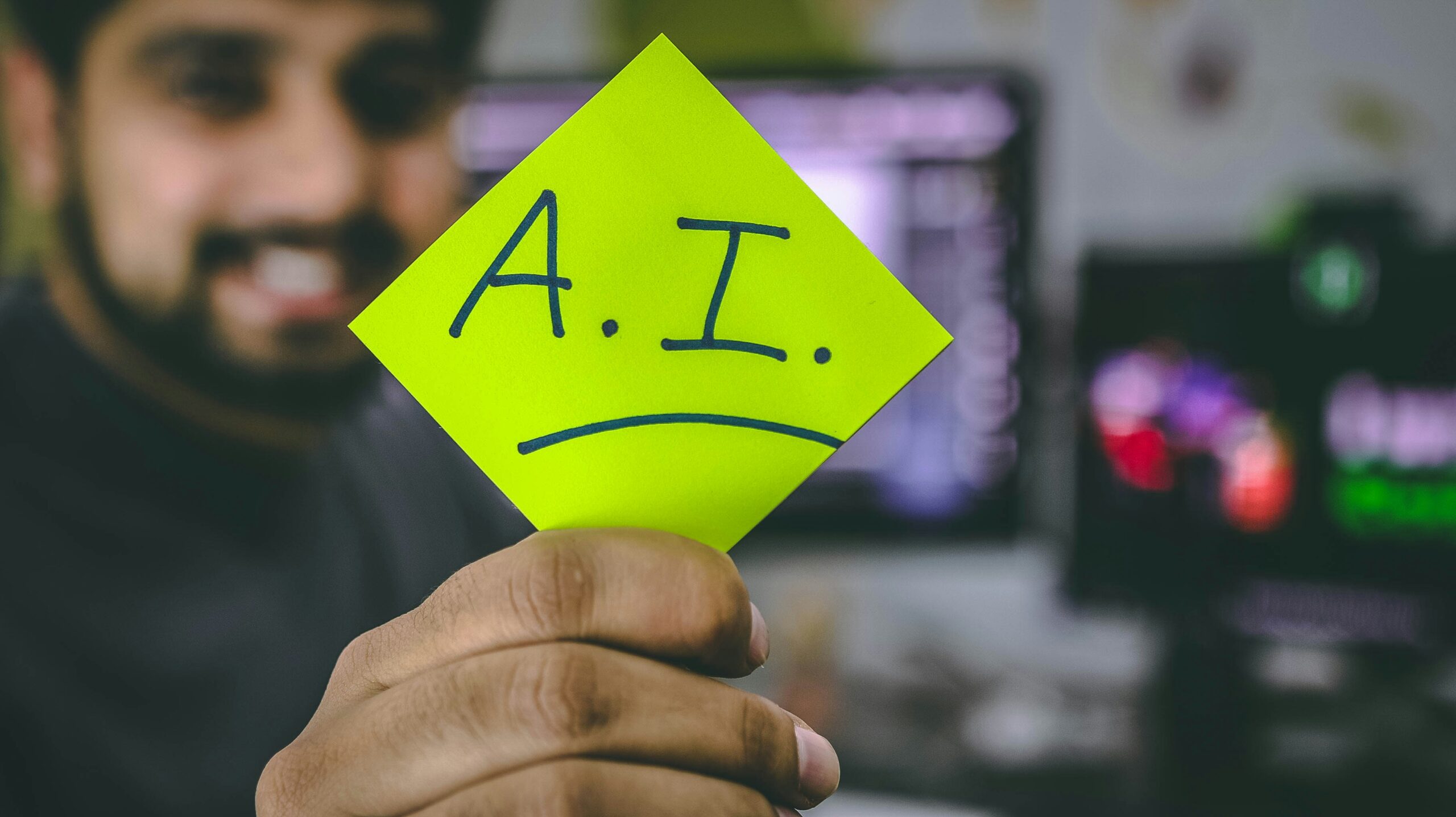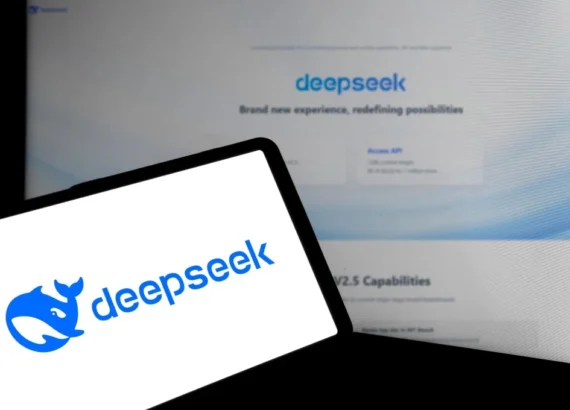Artificial Intelligence is Revolutionizing the Healthcare Industry
Artificial Intelligence (AI) is everywhere now a days. The integration of AI technologies in healthcare systems is revolutionizing the way medical professionals diagnose, treat, and manage patients. From enhancing diagnostics and streamlining electronic health records to personalizing patient care and advancing drug discovery, AI is reshaping the healthcare landscape. This article explores eight key ways in which artificial intelligence is transforming the healthcare industry, highlighting the profound impact it is having on improving patient outcomes, increasing efficiency, and revolutionizing medical practices.
1. Introduction: The Rise of Artificial Intelligence in Healthcare
Understanding the Impact of AI in Healthcare
Hey there, health-conscious readers! It’s time to strap on your thinking caps because we’re diving headfirst into the world of artificial intelligence (AI) and its game-changing role in the healthcare industry. We all know that AI has taken over our smartphones, homes, and even our favorite Netflix recommendations, but did you know it’s also making waves in the world of health? Buckle up, because we’re about to explore eight incredible ways that AI is revolutionizing healthcare.

2. Enhancing Diagnostics and Early Detection
Early Detection of Life-Threatening Conditions
Picture this: you’re sitting in a doctor’s office waiting for test results, and suddenly, an AI-powered diagnostic system swoops in, helping your doctor make a more accurate diagnosis. Thanks to AI algorithms and machine learning, healthcare professionals can now leverage the power of data to improve diagnostics. AI can analyze mountains of patient data, spot patterns, and make connections that may have eluded human physicians. It’s like having a medical Sherlock Holmes on your healthcare team!
But that’s not all – AI is also a superhero when it comes to early detection. By analyzing symptoms, genetic data, and lifestyle factors, AI can identify potential red flags for life-threatening conditions. This means catching diseases in their infancy, improving treatment outcomes, and giving patients a fighting chance. Move over, Clark Kent – AI is here to save the day!
3. Streamlining Electronic Health Records and Data
Improving Data Accessibility and Interoperability
Now, let’s talk about the bane of every doctor’s existence – electronic health records (EHRs). We all know that deciphering those never-ending rows of data can feel like cracking the Enigma code. But fear not, because AI is here to lend a helping hand!
AI-driven solutions are revolutionizing the way healthcare data is collected and stored. From voice recognition software that transcribes patient conversations with lightning speed to algorithms that organize and label data, AI streamlines the EHR process, giving healthcare professionals more.
But the AI magic doesn’t stop there. It’s also working its behind-the-scenes wizardry to improve data accessibility and interoperability. Say goodbye to fax machines and endless paperwork – AI is breaking down barriers and ensuring that crucial patient information is easily accessible across different systems. It’s like having a smooth operator orchestrating a symphony of medical data!

4. Automating Repetitive Tasks and Improving Efficiency
Enhancing Efficiency in Healthcare Operations
Ah, administrative tasks – the bane of every healthcare professional’s existence. Nobody dreams of spending their days drowning in paperwork or updating spreadsheets. But fret not, because AI is here to swoop in and save the day!
Thanks to AI, administrative tasks can be automated, freeing up precious time for doctors, nurses, and other healthcare providers. From appointment scheduling and billing to inventory management, AI takes care of the nitty-gritty, allowing healthcare professionals to focus on what they do best – caring for patients. It’s like having a personal assistant who never asks for a coffee break!
And let’s not forget about the overall efficiency boost AI brings to healthcare operations. By analyzing data, optimizing workflows, and predicting patient needs, AI ensures that resources are allocated efficiently, reducing wait times, and improving patient satisfaction. It’s like having a secret superhero cape that magically makes healthcare operations smoother and more efficient!
So there you have it, folks – eight incredible ways that AI is revolutionizing the healthcare industry. From enhanced diagnostics and early detection to streamlined data management and automated tasks, AI is turning the healthcare landscape into a futuristic wonderland of improved patient care. Who would have thought that a little bit of AI could make such a big difference? Now that’s what we call healthcare with a touch of magic!

5. Personalizing Patient Care and Treatment Plans
Creating Tailored Treatment Plans with AI Algorithms
That’s where artificial intelligence (AI) comes in. Say goodbye to generic treatment approaches and hello to targeted solutions tailored to each individual’s unique needs. Whether it’s finding the most effective medication, adjusting dosage based on genetic factors, or predicting disease progression, AI algorithms are revolutionizing the way we approach patient care.
Improving Patient Outcomes through Personalized Care
Personalized care isn’t just about making patients feel special; it’s about improving outcomes. By using AI to analyze patient data like medical history, lifestyle factors, and genetic markers, healthcare providers can identify patterns and trends that may have otherwise gone unnoticed. This allows for earlier interventions, better disease management, and ultimately, improved patient outcomes. In a world where every patient is different, AI is helping us provide the individualized care that everyone deserves.

6. Advancing Drug Discovery and Clinical Trials
Accelerating Drug Discovery through AI-Powered Algorithms
The traditional drug discovery process is notoriously slow and expensive. Enter AI-powered algorithms, ready to shake things up. By analyzing massive databases of scientific literature, genomic data, and clinical trial results, AI can identify patterns, predict drug-target interactions, and even design new molecules with desired properties. This not only speeds up the drug discovery process but also increases the chances of finding breakthrough treatments for diseases that have long eluded us.
Enhancing Clinical Trials with AI-Enabled Patient Selection
However, recruiting the right patients can be a challenge. AI is here to help. By sifting through electronic health records and other data sources, AI algorithms can identify patients who meet specific criteria, making the recruitment process more efficient and inclusive. This not only speeds up the clinical trial process but also ensures that the results are more representative of the diverse patient populations that will benefit from these treatments.

7. Revolutionizing Telemedicine and Remote Patient Monitoring
Enhanced Remote Consultations and Virtual Care
Thanks to AI, telemedicine and virtual care have become a reality. With AI-powered chatbots and virtual assistants, patients can receive immediate medical advice, schedule appointments, and even get medication reminders – all from the comfort of their own homes. This not only improves access to healthcare, especially for those in remote areas, but also frees up healthcare professionals to focus on more critical tasks.
Remote Monitoring of Patient Vital Signs and Health Data
AI is also transforming the way we monitor patients remotely. From wearable devices that track vital signs to apps that analyze health data, AI can help detect early warning signs of deterioration or suggest lifestyle modifications for better health management. This proactive approach to remote patient monitoring not only improves patient outcomes but also reduces the burden on healthcare facilities, allowing resources to be allocated more efficiently.

8. Ethical and Regulatory Considerations in AI Healthcare Implementation
Addressing Ethical Issues and Bias in AI Algorithms
While AI offers incredible potential, it’s not without its ethical challenges. One major concern is bias in AI algorithms, which can perpetuate existing inequalities in healthcare. It is crucial to ensure that AI systems are designed and trained with diverse and representative data sets to avoid reinforcing biases. Additionally, transparency and accountability in algorithmic decision-making are essential to maintain trust and fairness in healthcare AI.
When dealing with sensitive health data, data security and privacy are of utmost importance. As AI integration in healthcare expands, it is crucial to establish robust safeguards to protect patient information. Compliance with data security and privacy regulations, such as HIPAA, must be a top priority. This includes implementing secure data storage, strict access controls, and rigorous data anonymization practices to safeguard patient privacy and maintain public trust.
Conclusion
AI has undoubtedly revolutionized the healthcare industry, from personalized patient care and drug discovery to telemedicine and remote monitoring. However, it’s essential to navigate the ethical and regulatory considerations that come with this AI-driven future. As long as we approach AI implementation responsibly and with a commitment to patient well-being, the possibilities for improving healthcare outcomes are limitless.
In conclusion, artificial intelligence is revolutionizing the healthcare industry in remarkable ways. From improving diagnostic accuracy and streamlining data management to personalizing patient care and advancing drug discovery, AI is driving unprecedented advancements and transforming healthcare systems worldwide. However, as AI continues to expand its presence in healthcare, it is crucial to address ethical considerations and ensure compliance with regulatory standards to maintain patient privacy and trust. With ongoing advancements and collaborations between AI technology and healthcare professionals, the future holds immense potential for further innovation and improved healthcare outcomes
FAQ
1. How is artificial intelligence improving diagnostics in healthcare?
Artificial intelligence algorithms can analyze medical imaging data with exceptional accuracy, aiding in the early detection and diagnosis of diseases. By leveraging AI, healthcare providers can achieve more precise and timely diagnoses, leading to improved patient outcomes.
2. Can AI really streamline electronic health records and data management?
Yes, AI can significantly enhance the efficiency of managing electronic health records (EHRs) and healthcare data. AI-powered systems can automate data entry, extraction, and analysis, reducing the burden on healthcare staff and improving data accuracy and accessibility.
3. What impact does AI have on personalized patient care?
AI enables the creation of personalized treatment plans by analyzing vast amounts of patient data and medical research. This helps healthcare professionals tailor interventions to individual patients, considering their unique characteristics and medical history, ultimately leading to more effective and personalized healthcare delivery.
4. Are there any ethical concerns related to implementing AI in healthcare?
Yes, Some concerns include the potential for bias in algorithms, patient data privacy, and the overall impact on the doctor-patient relationship. It is crucial to address these concerns and establish ethical guidelines to ensure responsible and ethical AI implementation in healthcare.
Thank you for reading
If you want to build your website in an affordable price contact: www.nextr.in
Read this: 7 Common Misconceptions About Artificial Intelligence


















